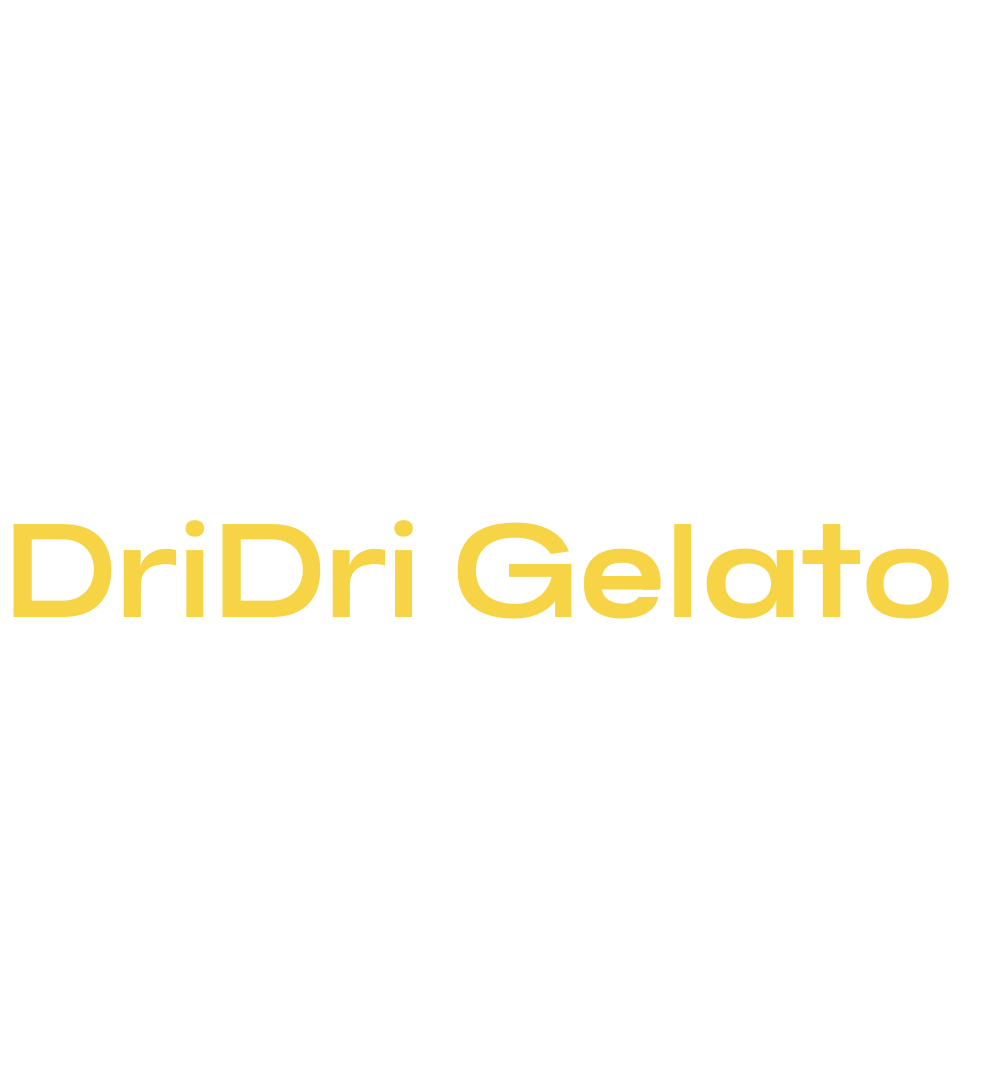Frozen Delights
Why Ice Cream Makes Me Cough: Understanding the Reaction!
Analyze why ice cream triggers coughing – from dairy allergies to asthma, find out the surprising reasons behind this common reaction!

Wonder why ice cream makes you cough? Dairy allergies, GERD, asthma, infection risks, or mucus overproduction might be the culprits. Dairy proteins can trigger mucus and coughing for allergy sufferers. GERD can worsen due to ice cream's lactose. Asthma may react to cold foods like ice cream. Sugar in ice cream can up oral infection risks. Dairy can cause excess mucus, leading to coughing. Opt for dairy-free or smaller portions to manage. Each reason sheds light on why ice cream affects your cough – hopefully, understanding can help mitigate discomfort.
Key Takeaways
- Dairy proteins in ice cream can trigger excess mucus production.
- Increased mucus irritates airways, leading to coughing.
- Cold temperature of ice cream can also trigger coughing.
- Dairy-free alternatives can help avoid coughing reactions.
- Staying hydrated while eating ice cream can ease coughing.
Allergy Triggers
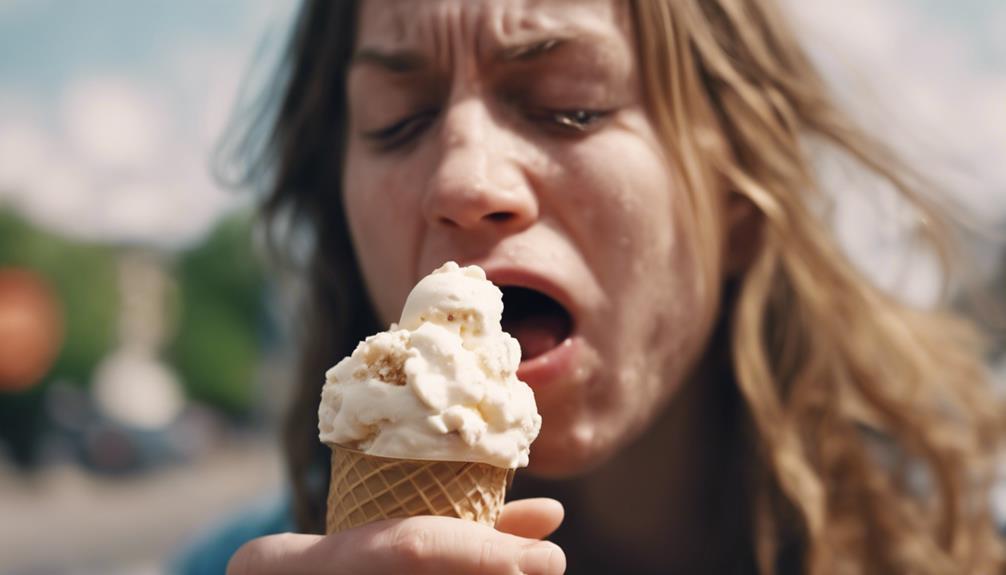
When you enjoy ice cream, it's important to be mindful of dairy proteins that can trigger allergic reactions, such as coughing, sneezing, and a runny nose. These proteins can stimulate mucus production, leading to discomfort and irritation. To prevent such reactions, it's vital to read ingredient lists carefully and avoid dairy products if you have known allergies.
Freezing ice cream before consumption may help reduce exposure to these allergens, lessening the likelihood of a reaction.
If you experience symptoms like coughing or a runny nose after consuming ice cream, it's crucial to recognize these as signs of a potential dairy allergy. Symptoms typically subside within a few hours unless a severe reaction occurs. For individuals prone to dairy allergies, avoiding ice cream with dairy proteins is a necessary precaution to safeguard against allergic reactions.
Stay vigilant about what you eat to enjoy ice cream without the unwelcome coughing fits and other allergic responses.
GERD and Ice Cream
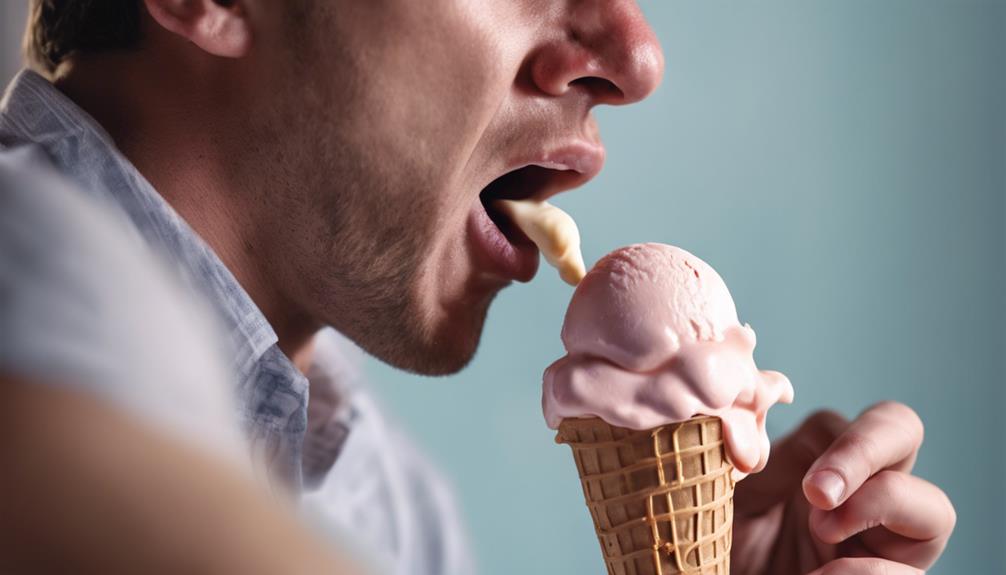
Ice cream's high lactose content can exacerbate symptoms of Gastroesophageal Reflux Disease (GERD), making it a potential trigger for discomfort and acid reflux. Dairy products, such as ice cream, can worsen GERD symptoms like heartburn and regurgitation. The lactose in ice cream can lead to increased acid production in the stomach, worsening GERD symptoms and potentially causing coughing episodes.
To manage GERD triggered by ice cream, consider consuming smaller, more frequent meals and avoiding dairy products. Severe cases of GERD may require treatment with proton pump inhibitors or H2 blockers to alleviate symptoms.
Recognizing and addressing triggers like ice cream is vital in preventing acid reflux and coughing. By managing your diet and steering clear of dairy products, you can help reduce the discomfort associated with GERD exacerbated by ice cream.
Asthma Connection
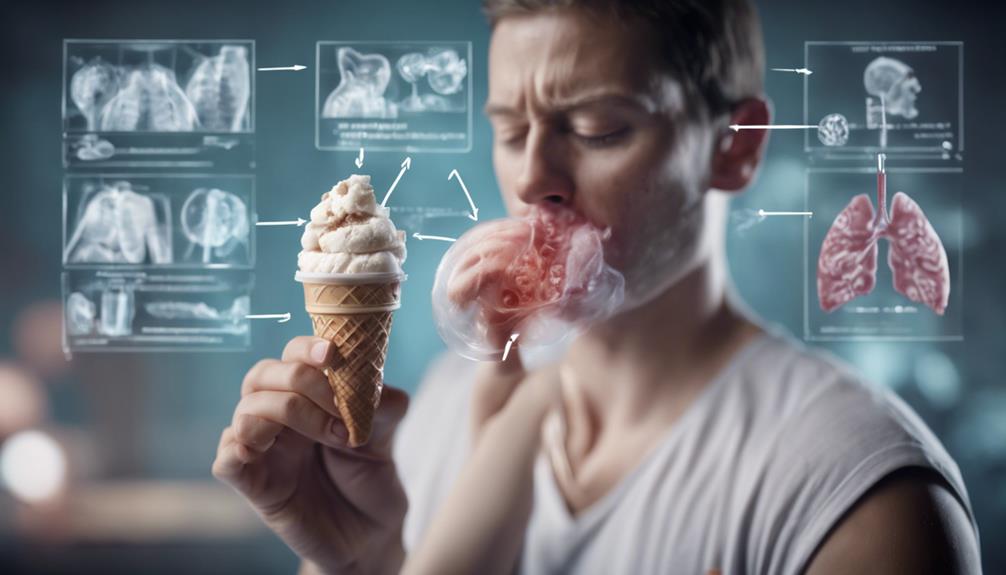
Consuming ice cream can worsen coughing and respiratory symptoms in individuals with asthma due to the cold temperature and dairy proteins irritating the airways. Asthma patients may find themselves experiencing coughing fits, chest tightness, and shortness of breath after eating ice cream. The dairy proteins present in ice cream can further worsen asthma symptoms such as wheezing and difficulty breathing.
If you have asthma, caution is necessary when consuming cold foods like ice cream, especially in cold weather or when you're already experiencing respiratory symptoms. Opting for dairy-free alternatives can be a practical solution to manage ice cream-induced coughing in asthmatic individuals.
Infection Risks

How can the high sugar content in ice cream increase the risk of oral bacterial infections?
The high sugar content in ice cream provides a favorable environment for oral bacterial infections to thrive. The combination of warmth and moisture in the mouth, coupled with the sugar from ice cream, creates an ideal breeding ground for bacteria. Regular indulgence in ice cream can't only lead to oral bacterial infections but also heighten the risk of throat infections, particularly when consumed in excess.
To reduce the risk of infection associated with ice cream indulgence and to safeguard against exacerbating existing health conditions like asthma, consider opting for alternatives such as hot soup.
Hot soup not only provides warmth and comfort but also lacks the high sugar content that promotes bacterial growth in the mouth.
- Choose hot soup over ice cream to reduce the risk of infections.
- Limit ice cream consumption to decrease the likelihood of oral bacterial infections.
- Be mindful of the impact of high sugar content on existing health conditions like asthma.
Mucus Production Effects
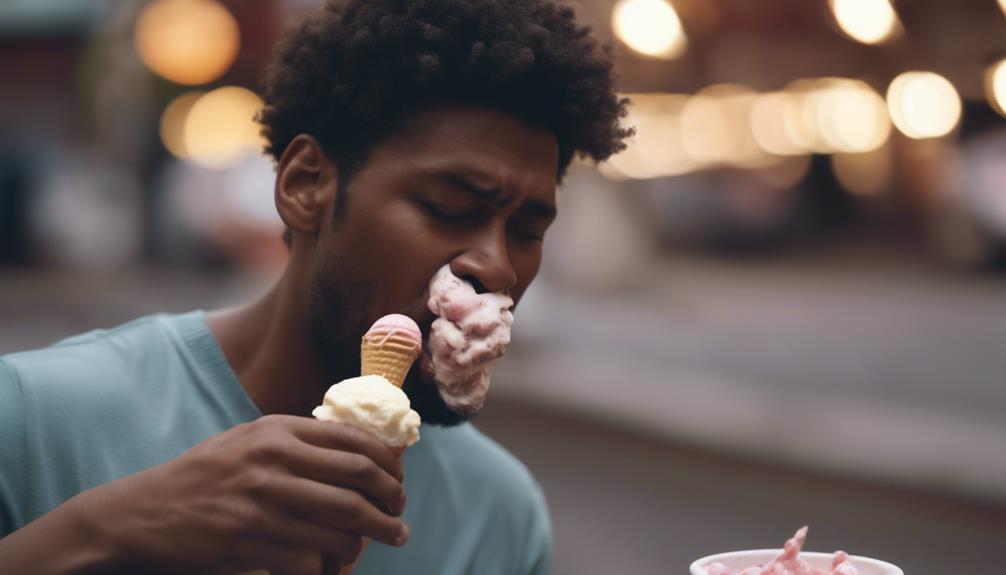
To avoid exacerbating coughing episodes and throat irritation, consider the impact of dairy consumption in ice cream on mucus production in the respiratory system. Dairy products, including ice cream, can stimulate excess mucus production in the respiratory system. This increased mucus can lead to throat irritation and coughing, making it uncomfortable for individuals sensitive to dairy.
Casein proteins found in dairy are known to be a common trigger for mucus secretion in some people, further contributing to these symptoms. By avoiding dairy products like ice cream, individuals prone to mucus-related coughing episodes can potentially reduce the frequency and severity of their symptoms.
It is advisable to stay hydrated while consuming ice cream to help alleviate mucus-related throat discomfort and coughing. Drinking water can help thin out the mucus, making it easier to clear from the respiratory passages.
Being mindful of the impact of dairy on mucus production in the respiratory system can assist in managing and minimizing the associated symptoms when enjoying ice cream.
Brain Freeze Impact

Brain freeze, also known as ice cream headache, occurs when cold food touches the roof of your mouth, causing a rapid constriction and dilation of blood vessels. This sudden temperature change triggers nerve signals that result in a headache, commonly experienced when you eat ice cream or other cold treats.
Here are some key points to take into account about brain freeze impact:
- The intense headache from brain freeze typically lasts for less than a minute and is generally harmless, with no long-term effects.
- Slowing down your consumption of cold foods, such as ice cream, can help prevent or lessen the occurrence of brain freeze.
- Individual differences in nerve sensitivity play a role in the likelihood of experiencing brain freeze; some individuals may be more prone to it, while others may not experience it at all.
Dairy Sensitivities

Dairy sensitivities may lead to coughing episodes after consuming ice cream due to allergic reactions or lactose intolerance. Ingredients found in ice cream, such as dairy proteins like casein and lactose, can trigger coughing in individuals with sensitivities.
The coughing may stem from an underlying dairy allergy, causing throat irritation and increased mucus production. For those experiencing these symptoms, opting for dairy alternatives like almond, soy, or coconut milk ice cream can be a suitable solution.
Frequently Asked Questions
What Does It Mean When Ice Cream Makes You Cough?
When ice cream makes you cough, it could be due to the cold temperature irritating your throat, dairy ingredients triggering mucus production, consuming too quickly causing brain freeze, or allergies/sensitivities to certain components.
What Is a Vagus Nerve Cough?
When your vagus nerve triggers a cough, it's a protective reflex clearing your airways. Cold temps or allergens can stimulate it. Understanding this helps manage ice cream-induced coughing. Keep your respiratory health in check.
Why Do I Gag After Eating Ice Cream?
When you gag after eating ice cream, it's likely because the coldness irritates your throat, triggering a reflexive response. Your sensitive gag reflex or allergies to ice cream ingredients can also contribute to this discomfort.
Why Does Dairy Make Me Cough?
Dairy may make you cough due to allergenic proteins causing throat irritation. Lactose intolerance can lead to coughing from dairy consumption. Avoid dairy products or opt for dairy-free alternatives to prevent coughing episodes and ease discomfort.
What Are Some Solutions for Preventing Coughing After Eating Ice Cream?
If you’re experiencing the “surprising causes of ice cream cough,” try some remedies like eating smaller portions, slowing down while eating, or opting for dairy-free alternatives. Sipping warm water or gargling salt water can also soothe your throat. If symptoms persist, consult a healthcare professional for further advice.
Conclusion
So, next time you're enjoying a bowl of ice cream and suddenly start coughing, don't worry – there are a variety of factors that could be causing this reaction.
From allergy triggers to dairy sensitivities, understanding why ice cream makes you cough can help you better manage your symptoms.
Remember, knowledge is power, and knowing the reasons behind your discomfort can help you enjoy your frozen treat without any unexpected surprises.
As the Editor-in-Chief, Sara ensures that every piece of content published on the website is informative, engaging, and easy to follow. She believes in empowering readers to explore their creativity and experiment with various flavors and toppings. Sara’s step-by-step guides and clear instructions enable ice cream enthusiasts to create their own customized masterpieces that will impress friends and family.
With a wealth of experience in the culinary world, Sara brings a creative touch to Dri Dri Gelato’s content. She understands that ice cream is more than just a dessert—it’s a delightful experience that can bring joy and excitement to any occasion. Sara’s expertise lies in not only creating delicious ice cream recipes but also in teaching others the art of making ice cream at home, from the basics to the more advanced techniques.
Frozen Delights
Pomegranate Spritz
Glimmering with pomegranate juice and sparkling wine, the Pomegranate Spritz is a refreshingly sophisticated cocktail that invites you to indulge in its vibrant flavors.
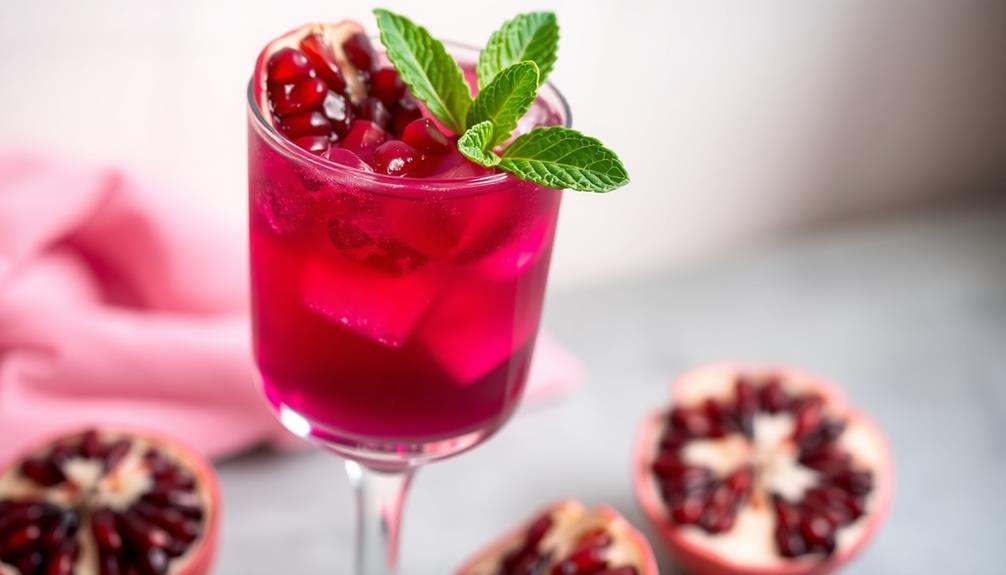
The Pomegranate Spritz is a refreshing Italian-inspired cocktail that combines tart pomegranate juice, effervescent sparkling wine, and a touch of citrusy lemon. Popularized in the 2000s, this sophisticated drink has become a beloved summertime favorite across Europe and the U.S. To make, you'll muddle pomegranate seeds, add the sparkling wine and lemon juice, then strain into a chilled coupe glass. Top it off with a garnish of pomegranate arils for a vibrant, visually stunning presentation. This easy-to-prepare cocktail encourages creativity and can be adjusted to suit your taste preferences – perfect for both intimate gatherings and larger celebrations.
Key Takeaways
- The Pomegranate Spritz is a refreshing cocktail originating in Italy, combining pomegranate juice, sparkling wine, and soda water for a sophisticated flavor profile.
- The cocktail features a balance of tart and sweet notes, making it a popular summertime favorite enjoyed in various settings.
- The recipe requires minimal ingredients, including pomegranate juice, sparkling wine, lemon juice, and honey, allowing for quick preparation.
- Garnishing the Pomegranate Spritz with pomegranate arils adds color, crunch, and extra flavor, enhancing the overall visual appeal and taste experience.
- The Pomegranate Spritz represents a blend of tradition and innovation, encouraging creativity in mixology and cocktail crafting.
History
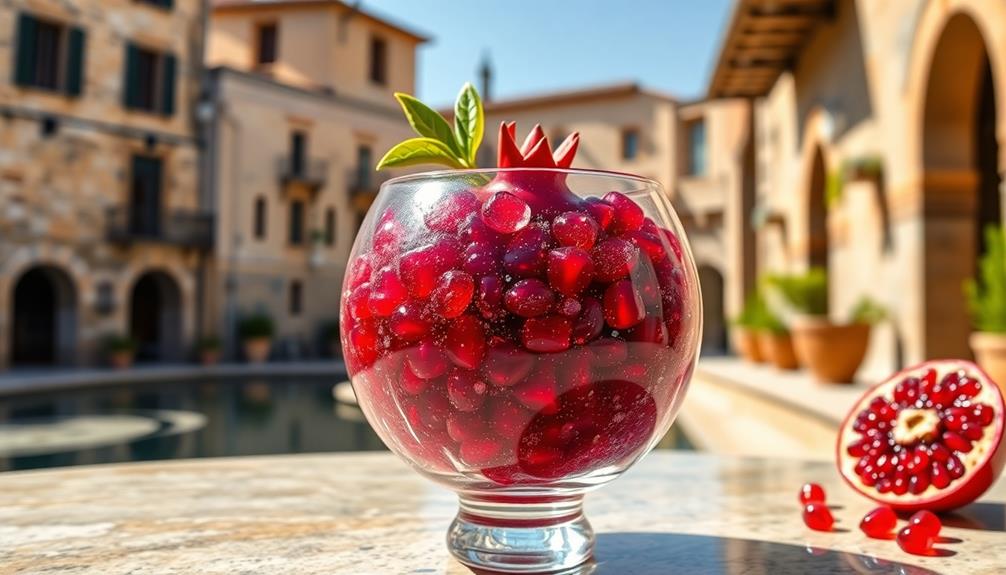
Though the pomegranate has been cultivated for centuries, the pomegranate spritz is a relatively modern cocktail. The origins of this refreshing beverage can be traced back to Italy, where mixologists began experimenting with the tart, sweet flavor of pomegranate juice in the early 2000s.
Traditionally, the pomegranate spritz is made by combining pomegranate juice, sparkling wine, and a touch of soda water. This combination creates a vibrant, effervescent drink that perfectly balances the pomegranate's natural acidity with the lightness of the sparkling wine.
As the pomegranate spritz gained popularity in Italy, it soon began to spread across Europe and eventually made its way to the United States.
Today, this cocktail has become a beloved summertime favorite, offering a unique and sophisticated twist on the classic spritz formula. Whether enjoyed on a sunny patio or as a refreshing aperitif, the pomegranate spritz has cemented its place as a modern classic.
Recipe

Pomegranate Spritz is a refreshing and vibrant cocktail that captures the essence of the pomegranate fruit. This fizzy beverage combines the tart and sweet flavors of pomegranate juice with the effervescence of sparkling wine, creating a delightful balance that's perfect for any occasion.
Whether you're hosting a sophisticated dinner party or simply seeking a refreshing sip on a warm day, the Pomegranate Spritz is sure to impress. Its vibrant hue and elegant presentation make it a visually stunning addition to any gathering.
Ingredients:
- 4 oz pomegranate juice
- 2 oz dry sparkling wine
- 1 oz freshly squeezed lemon juice
- 1 tbsp honey (or to taste)
- Ice cubes
- Pomegranate arils for garnish (optional)
To prepare the Pomegranate Spritz, start by adding the pomegranate juice, lemon juice, and honey to a cocktail shaker filled with ice. Shake vigorously until well-chilled. Strain the mixture into a champagne flute or wine glass.
Top with the sparkling wine and stir gently to combine. Finally, garnish with a few pomegranate arils, if desired.
When making the Pomegranate Spritz, be sure to use a high-quality pomegranate juice and a dry, crisp sparkling wine to achieve the perfect balance of flavors.
Adjust the honey to your desired sweetness level. The garnish of pomegranate arils not only adds a beautiful touch but also provides a burst of fresh pomegranate flavor in every sip.
Cooking Steps

First, you'll want to muddle the pomegranate seeds in a cocktail shaker to release their juices.
Then, add the sparkling wine and a splash of lemon juice.
Step 1. Muddle Pomegranate Seeds in Cocktail Shaker
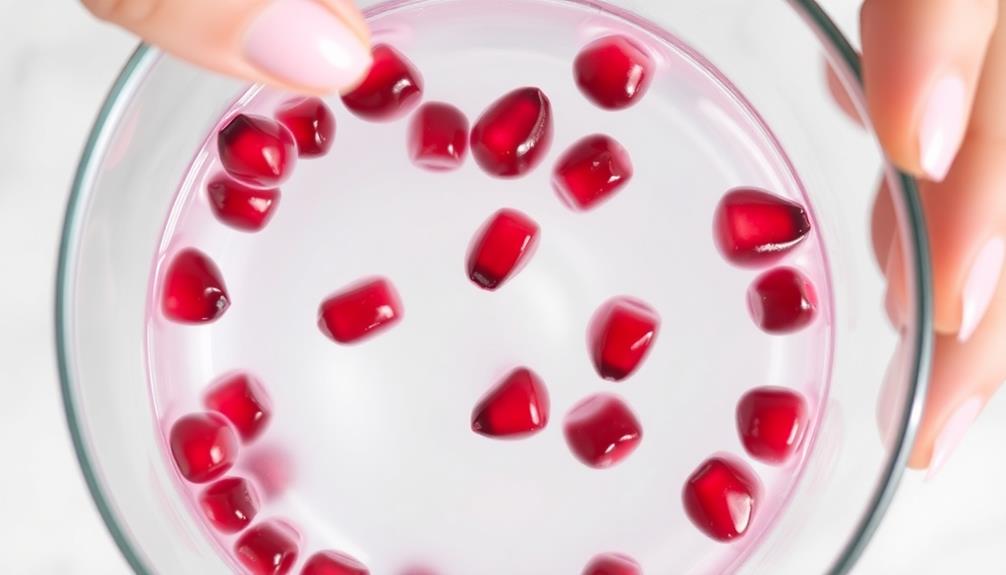
In your cocktail shaker, gently muddle the pomegranate seeds. Use the back of a spoon or a muddler to crush the seeds, releasing their vibrant juice and tangy aroma.
This action will create a luscious, ruby-red base for your Pomegranate Spritz. The invigorating scent of pomegranate can also uplift your mood, similar to how aromatherapy can stimulate the limbic system, enhancing your overall experience.
Next, add the vodka and freshly squeezed lemon juice. The acidity from the lemon will help balance the sweetness of the pomegranate.
Secure the lid and shake vigorously for about 10 seconds to thoroughly combine the ingredients.
Now, fill a highball glass with ice cubes. Strain the shaker contents over the ice, then top with chilled soda water.
The sparkling water will add a refreshing, effervescent touch to the cocktail.
Step 2. Add Sparkling Wine
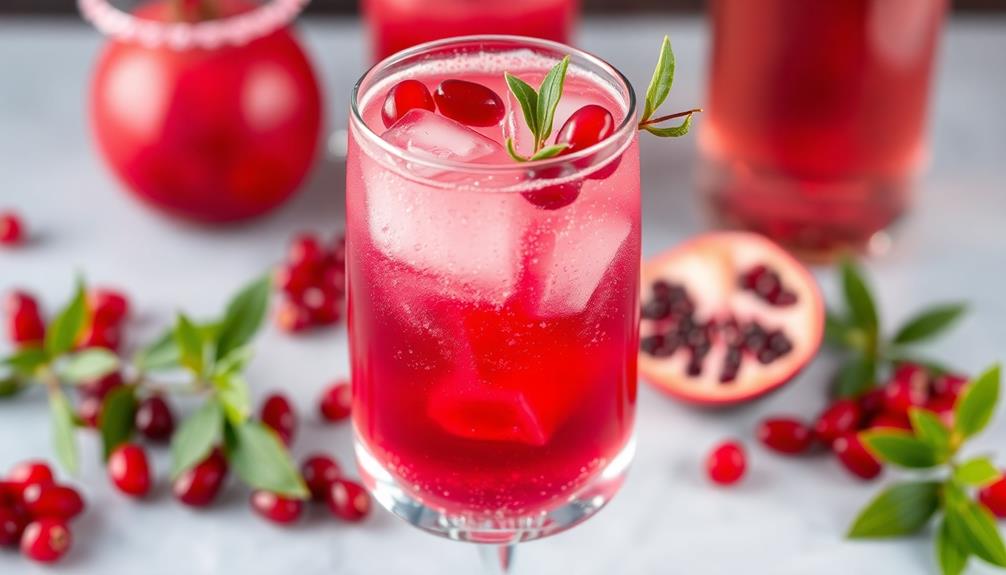
Why not add a splash of sparkling wine to your Pomegranate Spritz? Doing so will elevate the drink, adding a touch of effervescence and a hint of dryness to balance out the sweetness of the pomegranate.
Simply pour 2-3 ounces of your favorite dry sparkling wine into the cocktail shaker, being careful not to overfill it.
Once the sparkling wine is added, give the mixture a gentle stir to incorporate all the ingredients. This will help create a harmonious blend of flavors.
Strain the Pomegranate Spritz into a chilled glass, ensuring the fizz is preserved. You can garnish the drink with a few fresh pomegranate seeds or a lemon twist for a vibrant finishing touch.
The sparkling wine adds a festive touch to the Pomegranate Spritz, making it the perfect cocktail for celebrating special occasions or enjoying a relaxing evening.
The combination of the sweet pomegranate and the dry, bubbly wine creates a refreshing and sophisticated sip.
Step 3. Add Lemon Juice

To add a fresh, citrusy note to your Pomegranate Spritz, squeeze a generous amount of lemon juice into the cocktail shaker. This bright, acidic element will help balance the sweetness of the pomegranate and create a more dynamic, refreshing flavor profile.
When selecting your lemon, opt for a juicy, ripe variety that's heavy for its size. Roll it firmly on the counter before cutting to help release more of the aromatic oils.
Slice the lemon in half and, using a citrus reamer or the tines of a fork, extract as much juice as possible, being careful to avoid any seeds.
Add the lemon juice to the shaker, along with the pomegranate juice and simple syrup. Secure the lid and shake vigorously for 10-15 seconds to fully incorporate the ingredients.
Strain the mixture into your serving glass and top with chilled sparkling wine. Garnish with a lemon twist for an extra pop of citrus.
Step 4. Strain Into Chilled Coupe Glass
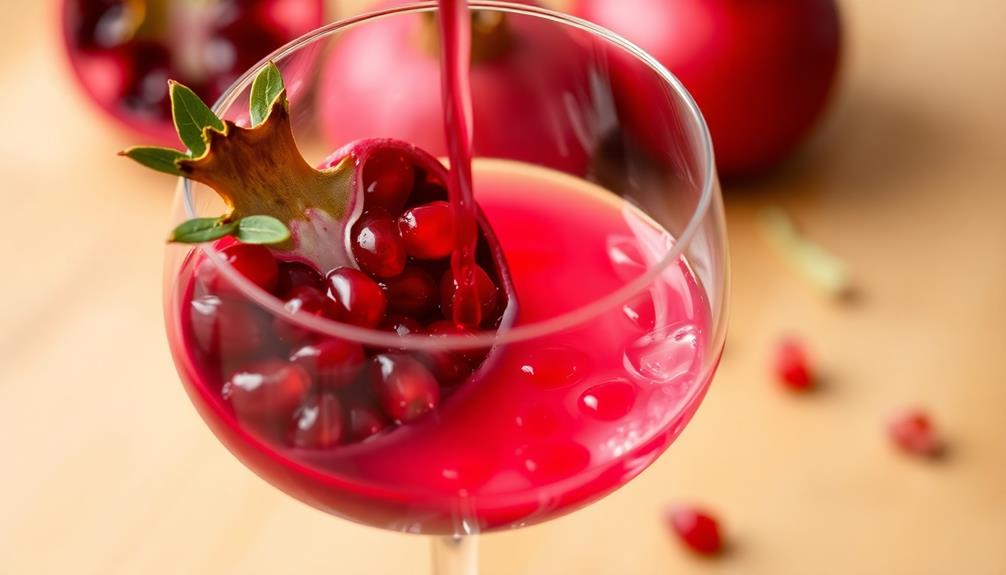
After vigorously shaking the ingredients, it's time to strain the cocktail into a chilled coupe glass. This step is crucial for achieving the desired texture and appearance of the Pomegranate Spritz.
Using a fine-mesh strainer, carefully pour the mixture through, ensuring to catch any pulp or ice chips. The strainer will help create a smooth, well-integrated drink, free from any unwanted solids.
Once strained, the vibrant, ruby-red liquid should be poured directly into the chilled coupe glass. This style of glass, with its wide, shallow bowl, is perfect for showcasing the Pomegranate Spritz's beautiful color and aroma.
The chilled glass will also help maintain the cocktail's refreshing temperature, allowing you to fully enjoy its balanced flavors.
With the cocktail now strained and in its serving vessel, you're ready to garnish and serve this refreshing Pomegranate Spritz. The final touch will elevate the drink's presentation and amplify its aromatic qualities.
Step 5. Garnish With Pomegranate Arils
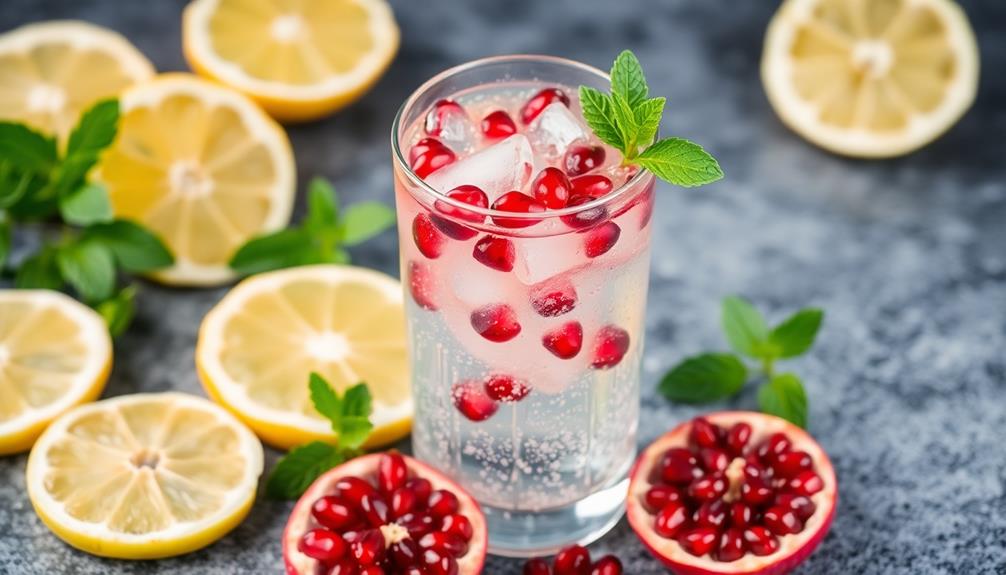
For the final touch, garnish the Pomegranate Spritz with a few pomegranate arils. These ruby-red jewels not only add a burst of color, but they also provide a delightful crunch and a sweet-tart flavor that complements the drink perfectly.
Additionally, pomegranate arils are rich in antioxidants, which may help support overall health and boost your immune system, making your drink not just delicious but also beneficial for you health benefits.
Pomegranate arils are the edible seeds found inside the pomegranate fruit. To extract them, simply cut the pomegranate in half, then use your fingers to gently pull the arils away from the bitter white pith.
Discard the pith, and you're left with a handful of beautiful, glistening arils. Carefully drop 3-5 pomegranate arils into the chilled Pomegranate Spritz, ensuring they float atop the vibrant pink liquid.
The arils will sink slightly, creating a visually striking effect as they dance and bob in the drink. Serve the Pomegranate Spritz immediately, allowing your guests to enjoy the interplay of flavors and textures with each sip and bite.
Final Thoughts
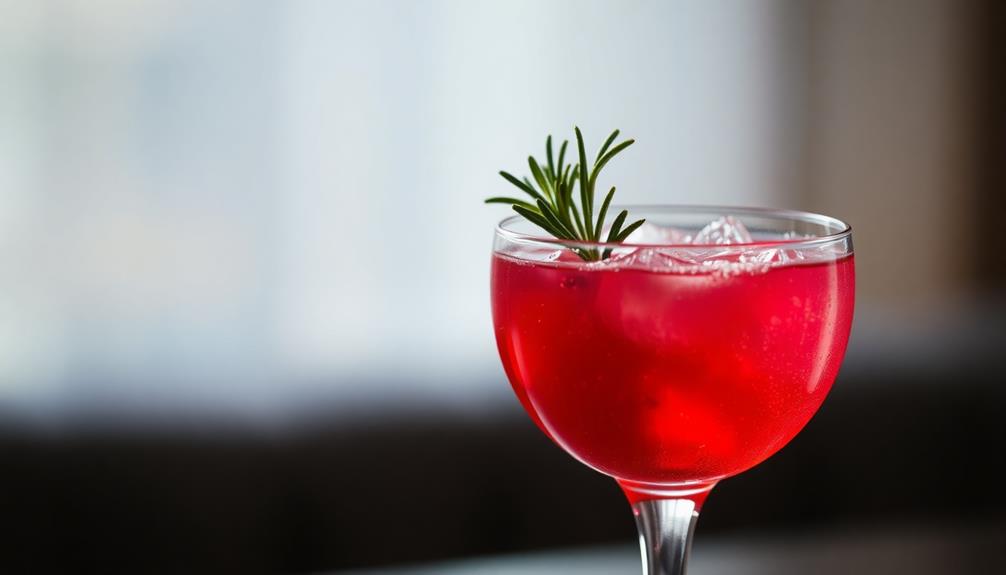
With a refreshing and light-hearted twist, the Pomegranate Spritz is a delightful cocktail that's sure to impress. The vibrant ruby-hued arils not only add a pop of color but also a burst of tart, sweet flavor that perfectly complements the effervescent bubbles.
Whether you're hosting a summer soiree or simply indulging in a relaxing evening at home, this versatile spritz is a crowd-pleasing choice. Its balance of flavors – from the tartness of the pomegranate to the subtle sweetness of the simple syrup – creates a truly unique and memorable sipping experience.
As you savor each refreshing sip, let the Pomegranate Spritz transport you to a world of refreshment and delight. With its easy-to-follow recipe and stunning presentation, this cocktail is sure to become a new favorite in your repertoire.
Raise a glass and toast to the perfect blend of tradition and innovation – the Pomegranate Spritz.
Frequently Asked Questions
Where Can I Purchase Pomegranate Juice Concentrate?
You can purchase pomegranate juice concentrate at your local grocery store, specialty food shop, or online retailers. Look for it near other fruit juices and concentrates. Many brands offer pomegranate concentrate for making juices, cocktails, and other recipes.
How Long Does the Pomegranate Spritz Stay Carbonated?
The carbonation in your drink will typically last for a few hours, though it may start to dissipate over time. To maintain the fizz, be sure to keep your spritz chilled and avoid letting it sit out at room temperature.
Can I Use a Different Type of Sparkling Wine?
You can absolutely use a different type of sparkling wine in your cocktail. Experiment with different styles, like Prosecco or Cava, to find the flavor profile that best suits your taste. Just be mindful of the carbonation level.
Is the Pomegranate Spritz Suitable for Vegetarians/Vegans?
Is the drink suitable for vegetarians and vegans? To determine this, you would need to check the ingredient list to ensure there are no animal-derived ingredients. As long as the ingredients are plant-based, the drink should be suitable for those following a vegetarian or vegan diet.
What Is the Ideal Glassware for Serving the Pomegranate Spritz?
For the best presentation, you'll want to serve the drink in a stemmed wine glass or a coupe glass. These elegant glassware options will showcase the vibrant color and bubbles of the cocktail.
Mario’s creativity shines through his ability to describe the sensory experience of enjoying ice cream. Whether he’s discussing the velvety texture, the explosion of flavors, or the delightful combinations of toppings and sauces, his words transport readers to a world of mouthwatering sensations. His descriptive language allows readers to imagine and savor the flavors even before taking the first bite.
Frozen Delights
Lemon Basil Spritz
Discover the refreshing and aromatic Lemon Basil Spritz, a Mediterranean-inspired cocktail that combines the zesty flavors of lemon and the fragrant aromas of fresh basil.

The Lemon Basil Spritz is a refreshing Mediterranean-inspired cocktail that combines the zesty flavors of lemon and the fragrant aromas of fresh basil. Originating in the Mediterranean region and influenced by Italian culinary traditions, this light and effervescent cocktail is perfect for summer gatherings, palate cleansers, or year-round enjoyment. You'll find it features a mix of vodka, fresh lemon juice, simple syrup, basil leaves, and sparkling water. To craft this cocktail, you'll muddle the ingredients, add the fizzy water and ice, then stir and garnish for a delightful tipple. Continue reading to discover more about the history and preparation of this versatile spritz.
Key Takeaways
- The Lemon Basil Spritz is a light, effervescent cocktail that originated in the Mediterranean region, combining zesty lemon and fragrant basil flavors.
- The cocktail is typically made with vodka, fresh lemon juice, simple syrup, basil leaves, and sparkling water, providing a refreshing and versatile drinking experience.
- Preparation involves muddling the lemon and basil, adding the other ingredients, and garnishing with a lemon slice and basil sprig for an optimal presentation.
- The Lemon Basil Spritz is well-suited for summer gatherings, as a palate cleanser, or year-round enjoyment, and can also be enjoyed as a non-alcoholic version.
- The cocktail contains natural, low-calorie ingredients, with potential health benefits from the antioxidants in basil and the vitamin C in lemon.
History

The origins of the lemon basil spritz can be traced back to the sun-soaked Mediterranean region, where the vibrant flavors of citrus and aromatic herbs have long captivated the palates of locals and travelers alike.
This refreshing cocktail likely emerged from the rich culinary traditions of Italy, where the combination of tart lemon, fragrant basil, and sparkling wine has been celebrated for generations.
Lemon and basil have been prized ingredients in Mediterranean cuisine for centuries, lending their distinct flavors to a vast array of dishes.
As the popularity of aperitif cocktails grew, inventive bartenders began experimenting with these beloved flavors, creating a harmonious balance between the herbal notes of basil and the bright, citrusy punch of lemon.
The result is the lemon basil spritz – a light, effervescent libation that perfectly captures the essence of the Mediterranean.
Recipe

The Lemon Basil Spritz is a refreshing and vibrant cocktail that combines the zesty flavors of lemon and the fragrant notes of fresh basil.
This versatile drink can be enjoyed on its own or as a mixer, making it a perfect choice for summer gatherings or as a palate cleanser between courses.
The key to this cocktail's success lies in the careful balance of its ingredients and the use of fresh, high-quality components. By following this recipe, you'll be able to create a Lemon Basil Spritz that's sure to delight your taste buds.
Ingredients:
- 2 oz vodka
- 1 oz fresh lemon juice
- 1 oz simple syrup
- 8-10 fresh basil leaves
- Sparkling water
- Ice
Instructions:
In a cocktail shaker, muddle the basil leaves with the simple syrup.
Add the vodka and lemon juice, then fill the shaker with ice.
Shake vigorously for 10-15 seconds until well-chilled.
Strain the mixture into a highball or Collins glass filled with ice.
Top with sparkling water and stir gently to combine.
Serve the Lemon Basil Spritz immediately, garnished with a fresh basil leaf or a lemon twist.
For optimal freshness and flavor, use the freshest possible basil and lemon juice.
Additionally, consider adjusting the sweetness to your personal taste by adding more or less simple syrup as desired.
Cooking Steps

In a glass, gently muddle the fresh lemon slices, basil leaves, and a touch of sugar until the flavors meld.
Next, add the fizzy water and a handful of ice cubes.
Stir the mixture well, then garnish with a thin lemon slice before serving the chilled Lemon Basil Spritz immediately.
Step 1. Muddle Lemon, Basil, and Sugar
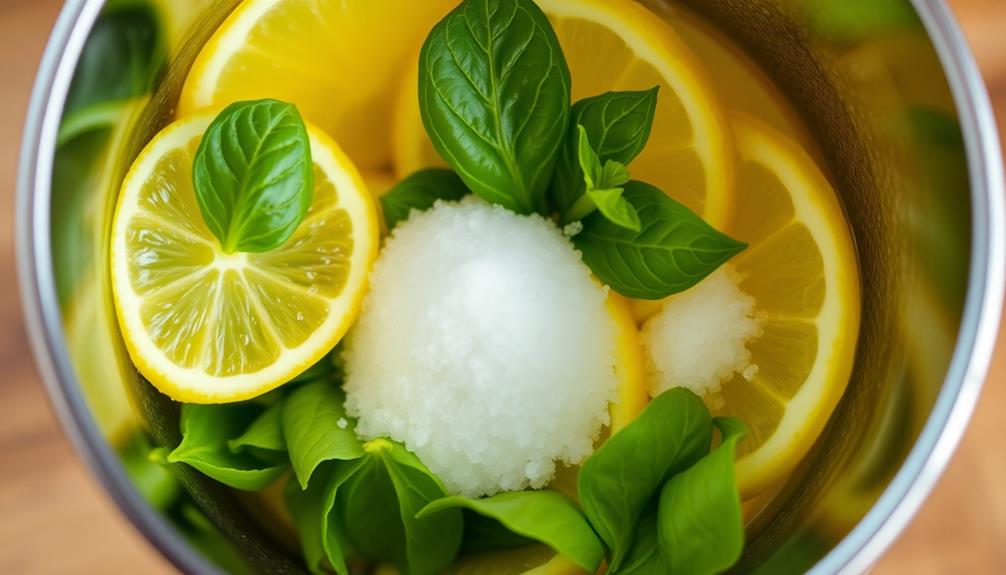
To begin the Muddle Lemon, Basil, and Sugar, start by grabbing a cocktail muddler or the back of a spoon.
In a sturdy glass or shaker, add the fresh lemon slices and lightly bruise them to release their aromatic oils.
Next, tear or chiffonade the basil leaves and add them to the glass.
Sprinkle in the granulated sugar, then use your muddler or spoon to gently press and twist the ingredients together.
This process, known as muddling, helps to extract the flavors from the lemon and basil, while dissolving the sugar.
Be careful not to over-muddle, as this can result in a bitter, herbaceous flavor.
Once the ingredients are well-combined, you're ready to move on to the next step in creating your refreshing Lemon Basil Spritz.
Step 2. Add Fizzy Water
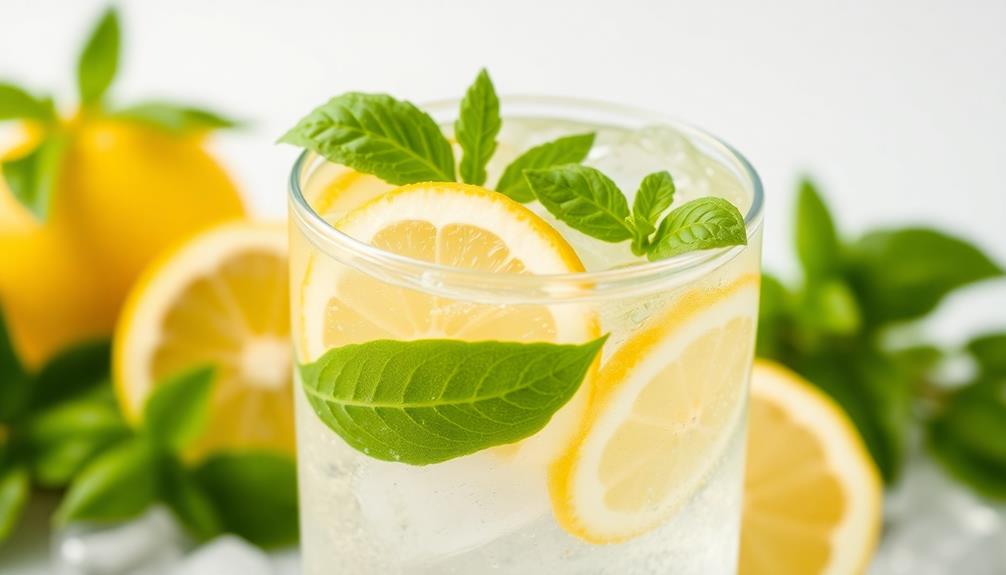
Next, add the fizzy water to your muddled lemon and basil mixture. This will help to create a refreshing, effervescent beverage.
The carbonation helps to lift the flavors and provide a light, airy texture. Be sure to add the fizzy water slowly, gently stirring as you pour, to maintain the desired level of fizz.
You can use a variety of carbonated waters, such as club soda, sparkling water, or even a flavored seltzer, depending on your personal preference.
The amount of fizzy water you add will depend on the size of your glass and your taste preferences. Start with a 1:1 ratio of muddled mixture to fizzy water, and adjust from there until you achieve the perfect balance of citrus, herb, and effervescence.
Finish by giving the drink a gentle stir to incorporate all the flavors.
Step 3. Add Ice Cubes

After adding the fizzy water, it's time to incorporate the ice cubes. This step is crucial for creating the perfect chilled and refreshing texture of the Lemon Basil Spritz.
Grab a handful of ice cubes and gently drop them into the glass, allowing them to settle at the bottom. The cool temperature of the ice will immediately start to chill the beverage, ensuring it's pleasantly cool and invigorating on a warm day.
As the ice melts, it will also gradually dilute the drink, softening the flavors and creating a more balanced sipping experience. Be sure to leave a bit of room at the top of the glass to allow for the fizz and aromatics to shine through.
Once the ice cubes are in place, give the drink a gentle stir to incorporate everything together.
Now your Lemon Basil Spritz is ready to be enjoyed! The combination of citrus, herbal notes, and refreshing carbonation is sure to delight your taste buds.
Step 4. Stir and Garnish With Lemon Slice

With the ice cubes in place, it's time to give your Lemon Basil Spritz a final stir. Grab a long spoon or cocktail stirrer and give the drink a gentle swirl, ensuring all the flavors are well-combined.
As you stir, you'll notice the vibrant green basil leaves and the bright lemon slices swirling together, creating a visually appealing and aromatic cocktail. For those considering how to streamline their cleaning routines, investing in a robot vacuum can significantly reduce the time spent on household chores, allowing more time to enjoy refreshing drinks like this one top reasons to consider robot vacuums.
Once the drink is thoroughly stirred, it's time to garnish. Take a thin slice of lemon and gently place it on the edge of the glass, allowing it to elegantly drape over the side.
The lemon slice not only adds a beautiful finishing touch but also provides a burst of citrus aroma when the drink is sipped. Feel free to add an additional sprig of fresh basil as well, further enhancing the herbal notes of the cocktail.
With the final touches in place, your Lemon Basil Spritz is now ready to be enjoyed. Savor the refreshing blend of tart lemon, fragrant basil, and sparkling soda water.
Step 5. Serve Immediately, Chilled

Serve the Lemon Basil Spritz immediately, chilled and refreshing. This cocktail is best enjoyed when it's ice-cold, as the crisp, zesty flavors truly shine through.
Pour the mixture over fresh ice in a highball glass to chill it quickly. The spritz should have a light, bubbly consistency, so be sure to top it off with the club soda at the last minute.
- For the perfect presentation, garnish the drink with a lemon slice and a sprig of fresh basil. The basil will release its aromatic oils as it sits in the drink, enhancing the herbal notes.
- Sip the Lemon Basil Spritz slowly and savor the balance of tart lemon, sweet basil, and effervescent club soda. It's a refreshing and sophisticated cocktail that's ideal for warm weather or as a palate cleanser between courses.
- Enjoy this spritz immediately for the best flavor and texture. The carbonation will start to dissipate over time, so it's best consumed right away while it's at its most crisp and refreshing.
Final Thoughts

This lemon basil spritz is a refreshing and versatile cocktail that can be enjoyed year-round. The combination of bright lemon, fragrant basil, and effervescent soda water creates a delightful and well-balanced drink.
Whether you're hosting a summer gathering or looking for a light and refreshing option to wind down your day, this spritz is sure to please.
One of the best things about this cocktail is its adaptability. You can adjust the ratios of ingredients to suit your personal taste preferences, making it a perfect canvas for experimentation.
Additionally, the use of readily available ingredients means you can easily whip up a batch on a whim.
As you sip this lemon basil spritz, let the flavors transport you to a warm, sunny day. The bright citrus and herbaceous notes provide a refreshing contrast, making this cocktail a versatile choice for any occasion.
Cheers to enjoying this perfect balance of flavors!
Frequently Asked Questions
How Long Does the Lemon Basil Spritz Keep Fresh?
The freshness of your beverage depends on various factors, but you can generally expect it to remain fresh for 3-5 days when stored properly in the refrigerator. Pay attention to any signs of spoilage and consume it within that timeframe.
Can I Substitute Another Herb for the Basil?
You can absolutely substitute another herb for the basil in this recipe. Thyme, oregano, or even cilantro would work well, adding their own unique flavors to the lemon-based spritz.
Is the Lemon Basil Spritz Suitable for Vegans?
Absolutely! The lemon basil spritz is vegan-friendly as it doesn't contain any animal-derived ingredients. You can enjoy this refreshing beverage without compromising your dietary preferences. Just make sure to use plant-based sweeteners or omit them entirely if desired.
Can I Make the Lemon Basil Spritz in Advance?
Yes, you can make this drink in advance. Simply prepare the ingredients and refrigerate until ready to serve. When it's time, assemble the spritz and enjoy its fresh, vibrant flavors.
How Do I Adjust the Sweetness of the Lemon Basil Spritz?
To adjust the sweetness, start by reducing the amount of simple syrup. You can also experiment with adding more lemon juice or a splash of club soda to balance the flavors. Taste and adjust until it's just right.
Mario’s creativity shines through his ability to describe the sensory experience of enjoying ice cream. Whether he’s discussing the velvety texture, the explosion of flavors, or the delightful combinations of toppings and sauces, his words transport readers to a world of mouthwatering sensations. His descriptive language allows readers to imagine and savor the flavors even before taking the first bite.
Frozen Delights
Raspberry Spritz
Presenting the Raspberry Spritz, a delightful Italian cocktail with a vibrant appearance that will leave you craving more. Explore the tasty variations within.
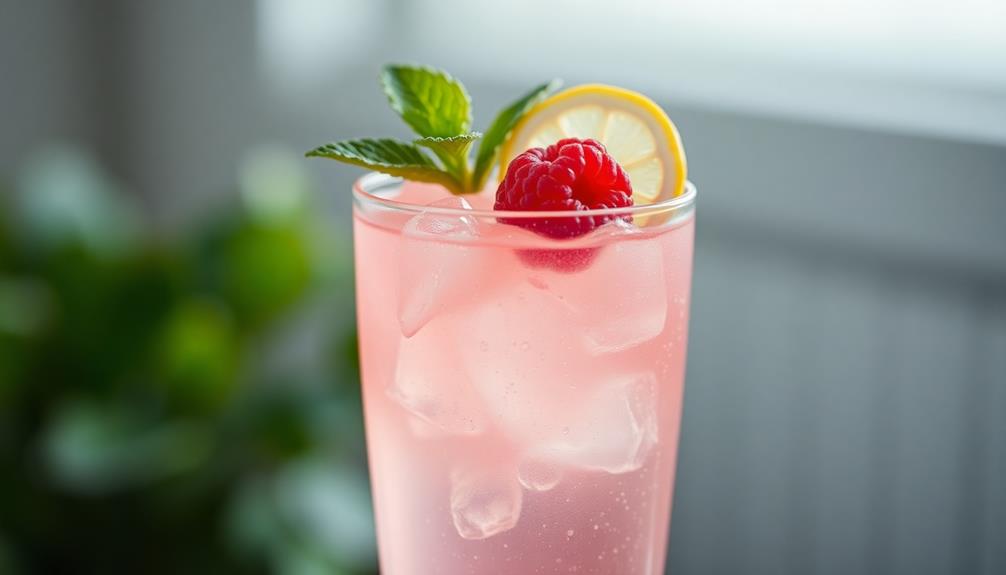
The Raspberry Spritz is a delightful Italian cocktail that's evolved from the classic Aperol Spritz. You'll get a balanced, refreshing flavor by muddling fresh raspberries, adding sparkling wine or Prosecco, club soda, and a touch of sweetness. Its vibrant appearance has made it popular among cocktail enthusiasts. To make it, simply muddle the raspberries, then top with the bubbly base, adjusting the sweetness to your taste. Serve over crushed ice and garnish with more raspberries and lemon for a visually stunning drink. Want to try some tasty variations? Keep reading to explore your options.
Key Takeaways
- The Raspberry Spritz is a modern classic cocktail that evolved from the traditional Aperol Spritz by using raspberry liqueur.
- The cocktail has a balanced and refreshing flavor profile, made with fresh raspberries, sparkling wine, and club soda.
- The vibrant appearance and versatility of the Raspberry Spritz make it a popular choice among cocktail enthusiasts.
- Preparation involves muddling fresh raspberries, adding simple syrup, and topping with sparkling wine and club soda.
- Variations can be created by substituting raspberries with other berries, using flavored sparkling water, or making a non-alcoholic version with sparkling juice.
History

Originating in the early 20th century, the Raspberry Spritz has its roots firmly planted in the vibrant cocktail culture of Italy. This effervescent libation was born out of the Aperol Spritz, a beloved summertime staple, but with a unique twist. By swapping Aperol for a tart and tangy raspberry liqueur, the Raspberry Spritz breathes new life into the classic recipe, creating a balanced and refreshing drink that perfectly captures the essence of the Italian Riviera.
The Raspberry Spritz quickly gained popularity, becoming a favorite among discerning imbibers who appreciated its complex flavor profile and eye-catching appearance.
With its vibrant hue and delicate sparkling effervescence, the Raspberry Spritz has become a modern classic, effortlessly bridging the gap between tradition and innovation. As the cocktail scene continues to evolve, this versatile and crowd-pleasing libation remains a steadfast favorite, capturing the hearts and palates of both seasoned and novice drinkers alike.
Recipe
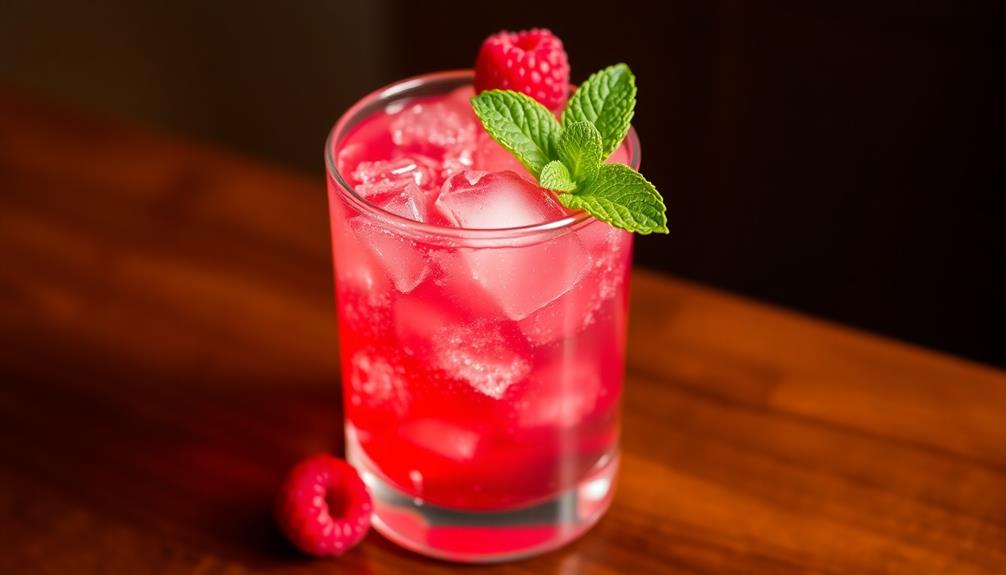
The Raspberry Spritz is a refreshing and delightful cocktail that combines the tartness of raspberries with the effervescence of sparkling wine. This easy-to-make drink is perfect for summer gatherings or as a festive aperitif.
To create the perfect Raspberry Spritz, you'll need a few simple ingredients and a bit of time to let the flavors infuse. The result is a beautifully colored and subtly sweet cocktail that will impress your guests and tantalize your taste buds.
Ingredients:
- 1 cup fresh raspberries
- 1/4 cup granulated sugar
- 1/4 cup water
- 1 bottle chilled sparkling wine or Prosecco
- Fresh raspberries and lemon slices for garnish
Instructions:
In a small saucepan, combine the raspberries, sugar, and water. Bring the mixture to a simmer over medium heat, stirring occasionally, until the sugar has dissolved and the raspberries have released their juices, about 5-7 minutes.
Remove from heat and let cool completely.
Strain the raspberry syrup through a fine-mesh sieve, pressing on the solids to extract as much liquid as possible. Discard the solids.
In a pitcher or large measuring cup, combine the raspberry syrup and chilled sparkling wine. Stir gently to combine.
Serve the Raspberry Spritz over ice in glasses, garnished with fresh raspberries and lemon slices.
Tips:
For a sweeter cocktail, adjust the amount of sugar to your taste.
You can also experiment with different types of sparkling wine or Prosecco to find your preferred flavor profile.
Additionally, you can make the raspberry syrup in advance and store it in the refrigerator for up to one week, allowing for quick and easy cocktail assembly when ready to serve.
Cooking Steps

First, grab a glass and start muddling some fresh raspberries to release their juices.
Next, top it off with some refreshing soda water and your choice of vodka or gin.
Step 1. Muddle Fresh Raspberries in Glass
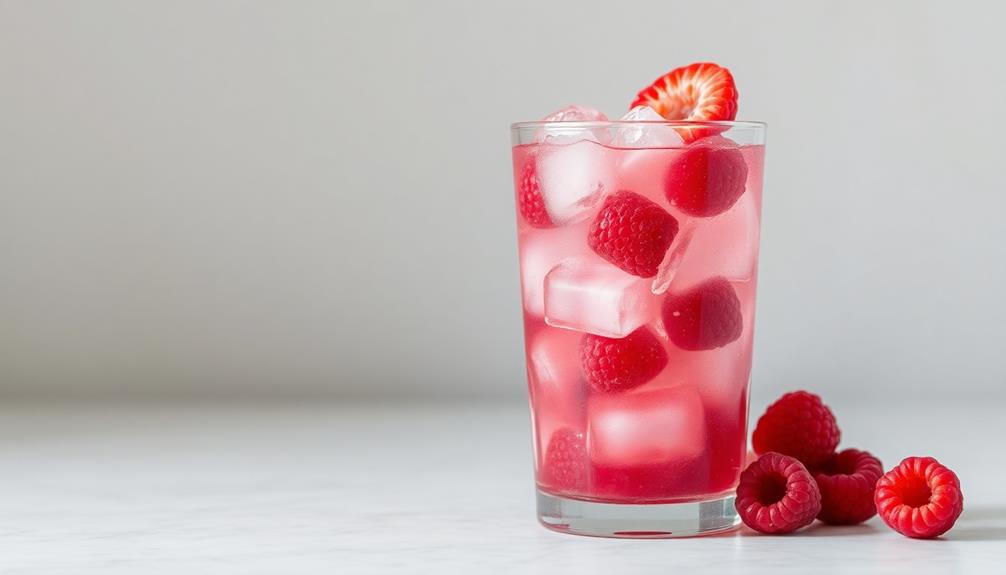
Juicy raspberries take center stage in this refreshing spritz. Start by grabbing a glass and adding a few handfuls of fresh raspberries.
Using a muddler or the back of a spoon, gently crush the berries to release their vibrant juices and aromas. Be careful not to over-muddle, as you want to maintain some texture and shape to the raspberries.
Once the raspberries are nicely muddled, add a splash of simple syrup or honey to sweeten the drink to your taste. Stir the mixture gently to combine.
Next, pour in a shot of chilled vodka or gin, followed by a squeeze of fresh lemon juice for a tart and refreshing balance.
Step 2. Add Soda Water
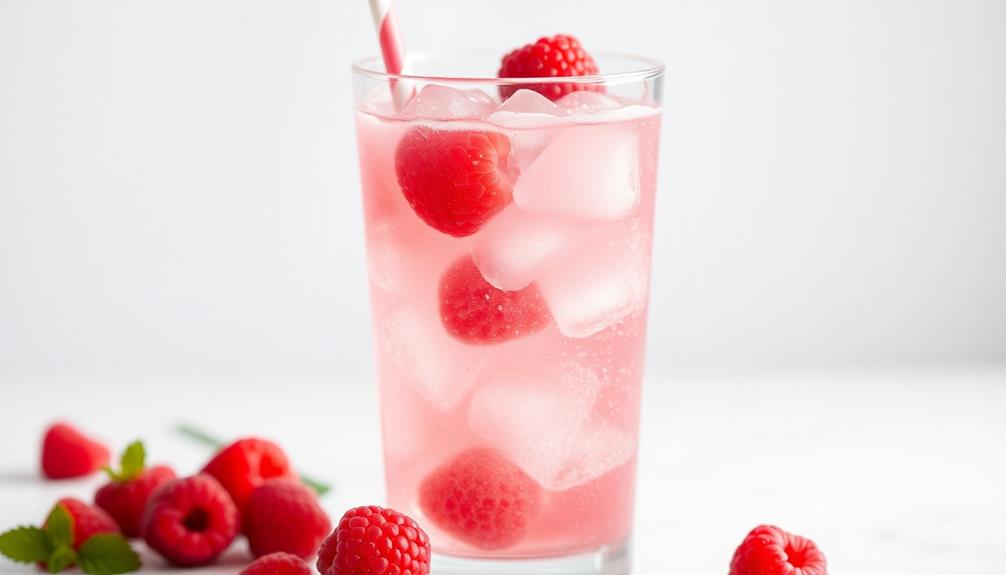
Add a generous splash of chilled soda water to the muddled raspberry mixture, giving the drink its signature spritz. The carbonation from the soda water will bring a lively, effervescent quality to the Raspberry Spritz, complementing the sweet-tart flavor of the raspberries.
For the best results, use a high-quality soda water or club soda. Avoid tonic water, as its quinine flavor can overpower the delicate raspberry notes. Aim for about a 1:1 ratio of soda water to the muddled raspberry mixture, adjusting to personal preference.
Gently stir the ingredients together, being careful not to over-dilute the drink. The soda water not only provides fizz but also helps to chill and dilute the drink to the perfect consistency.
This creates a refreshing, easy-to-sip cocktail that's perfect for warm weather or as a festive aperitif. Enjoy your Raspberry Spritz over ice for maximum enjoyment.
Step 3. Add Vodka or Gin
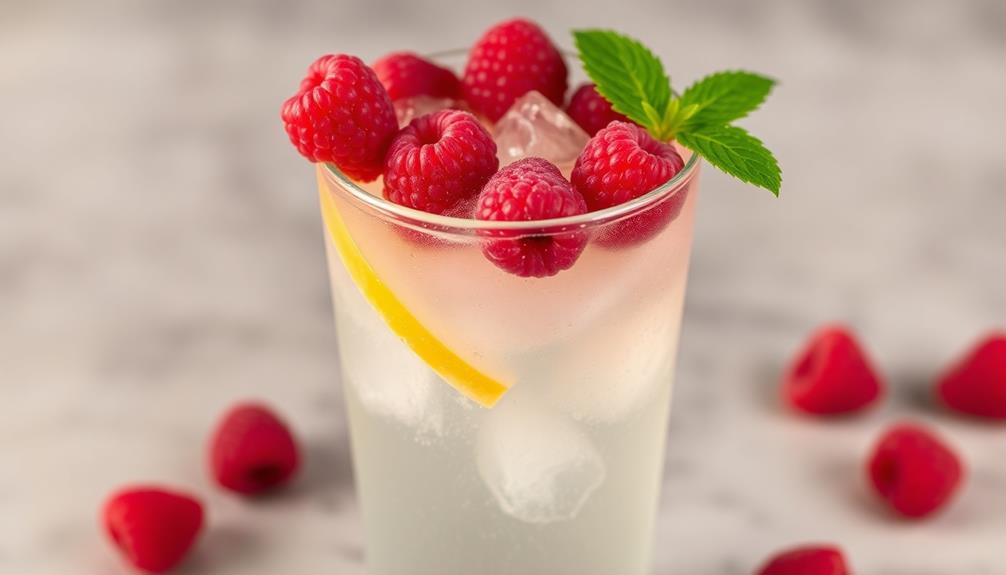
With the soda water adding effervescence, the Raspberry Spritz is now ready for a spirit boost. You can choose between vodka or gin to complement the sweet-tart raspberry flavor.
Vodka provides a neutral base, allowing the raspberry to shine, while gin lends a subtle botanical note that can enhance the drink's complexity.
When adding the spirit, start with 1-1.5 ounces per serving, depending on your personal preference. Gently stir to incorporate the vodka or gin into the raspberry-soda mixture.
Taste and adjust the amount as desired, keeping in mind that the alcohol content will affect the overall balance of the cocktail.
For a festive presentation, garnish the Raspberry Spritz with a lemon twist or fresh raspberries. The vibrant color and fizzy texture make this cocktail a refreshing and visually appealing choice, perfect for warm-weather sipping or as a celebratory sipper.
Step 4. Garnish With Lemon Twist

Grab a lemon and take a sharp paring knife to peel off a twist, making sure to avoid the bitter white pith. Carefully twist and peel the zest in one continuous strip, revealing the bright, fragrant yellow oils.
This lemon twist will serve as the perfect garnish for your Raspberry Spritz, adding a refreshing citrus aroma and a vibrant pop of color to the drink.
Once you've secured your lemon twist, gently express the oils over the surface of the drink by twisting and squeezing the peel above the glass. This will release the essential oils, infusing the Spritz with an irresistible lemon scent.
Step 5. Serve Over Crushed Ice
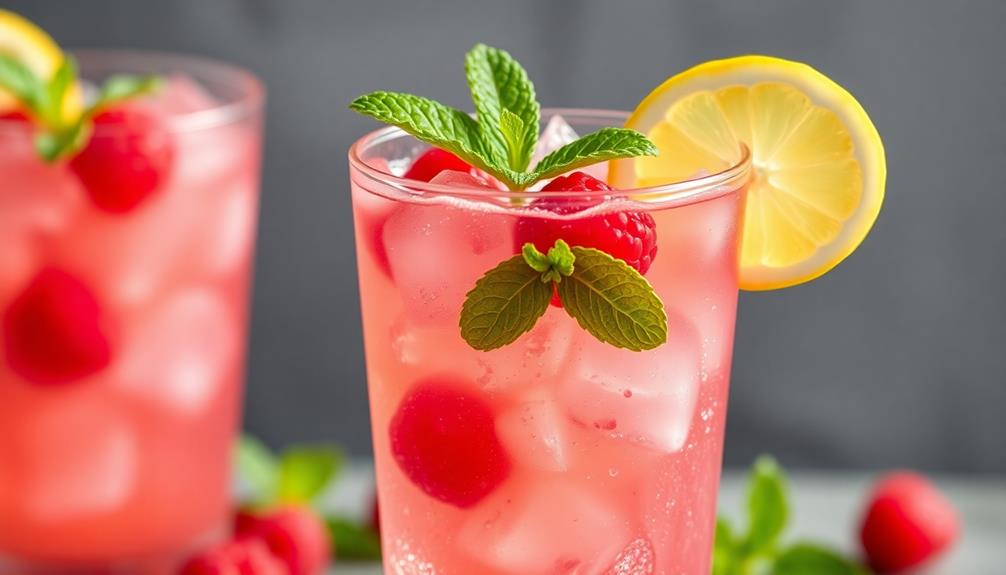
Fill a highball or Collins glass with crushed ice, ensuring it's packed in tightly. This provides a chilled, textured base for the Raspberry Spritz, allowing the flavors to shine.
The crushed ice also creates a visually appealing presentation, with the fizzing and swirling of the drink over the ice.
Next, carefully pour the raspberry-infused prosecco or sparkling wine into the glass, allowing it to cascade over the crushed ice. The bubbles will create a lively, refreshing effect.
Slowly add the raspberry liqueur, letting it gently mix with the sparkling wine.
Final Thoughts
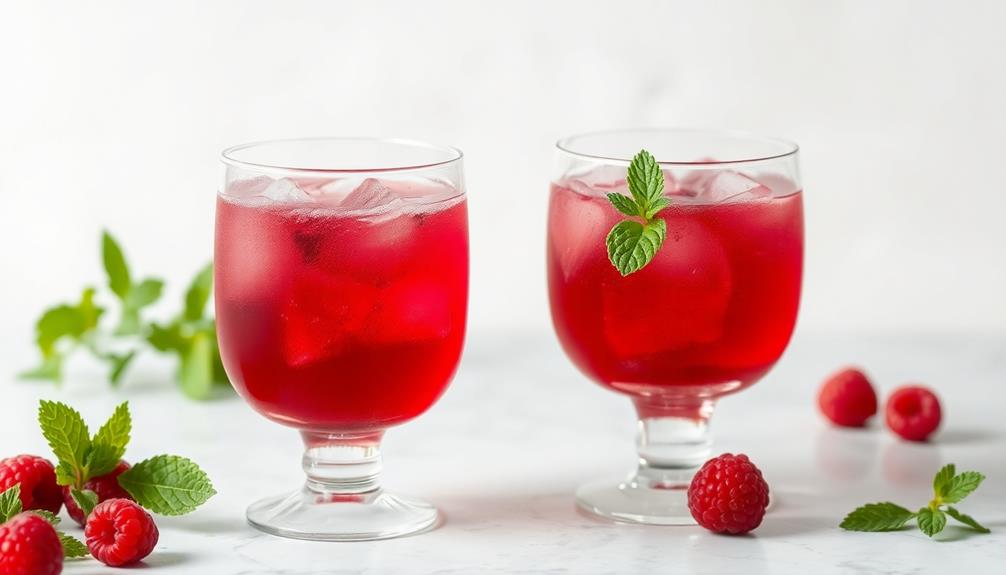
A delightful Raspberry Spritz is a refreshing way to cap off any gathering. This vibrant cocktail combines the tartness of raspberries with the effervescence of sparkling wine, creating a truly memorable experience.
The crushed ice adds a delightful chill, while the garnishes elevate the visual appeal. Pairing this drink with savory appetizers like crab cakes can enhance the overall enjoyment of your gathering.
When crafting this spritz, be mindful of the balance between the sweet and tart flavors. Adjust the raspberry purée to suit your taste preferences, ensuring the drink is neither too sweet nor too sour. The addition of a lemon twist or mint sprig can provide a lovely aromatic touch, complementing the overall flavor profile.
As you savor your Raspberry Spritz, take a moment to appreciate the vibrant hues and the satisfying fizz. This cocktail is a perfect way to end the evening, leaving your guests with a refreshing and delightful impression.
Cheers to the Raspberry Spritz!
Frequently Asked Questions
How Long Does the Raspberry Spritz Cocktail Keep?
The raspberry spritz cocktail keeps for about 2-3 days when stored properly in the refrigerator. It's best to consume it within this timeframe to enjoy its fresh and fizzy flavor.
Can I Use Frozen Raspberries Instead of Fresh?
You can absolutely use frozen raspberries instead of fresh. The texture and flavor will be slightly different, but it'll work just fine. Just be sure to let the frozen berries thaw before using them in your cocktail.
What Is the Best Type of Gin to Use?
When choosing gin for your cocktail, you'll want to pick a high-quality, flavorful gin that can hold its own against the tartness of the raspberries. Look for a London Dry or barrel-aged gin to complement the spritz.
Is the Raspberry Spritz Suitable for Non-Alcoholic Versions?
Yes, the raspberry spritz can be made into a non-alcoholic version. You can use a raspberry syrup or concentrate and sparkling water to create a refreshing, berry-infused mocktail that everyone can enjoy.
Can I Substitute the Lemon Twist for Another Garnish?
Absolutely, you can substitute the lemon twist for another garnish. The beauty of cocktails is their customizability. Feel free to experiment with different fruits, herbs, or even edible flowers to find the perfect garnish that suits your taste.
Mario’s creativity shines through his ability to describe the sensory experience of enjoying ice cream. Whether he’s discussing the velvety texture, the explosion of flavors, or the delightful combinations of toppings and sauces, his words transport readers to a world of mouthwatering sensations. His descriptive language allows readers to imagine and savor the flavors even before taking the first bite.
-

 Frozen Delights3 months ago
Frozen Delights3 months agoBest Gelato in Napoli – Neapolitan Delights
-

 Frozen Delights3 months ago
Frozen Delights3 months agoBest Gelato in Firenze – Florence's Sweet Spots
-

 Frozen Delights3 months ago
Frozen Delights3 months agoBest Gelato in Philly – Philadelphia's Finest
-

 Frozen Delights3 months ago
Frozen Delights3 months agoBest Gelato in Pisa – Sweet Treats in the City of the Leaning Tower
-

 Frozen Delights3 months ago
Frozen Delights3 months agoBest Gelato in Orlando – Cool off With the Best
-

 Ice Cream Recipes3 months ago
Ice Cream Recipes3 months agoExotic Treat: Best Ube Ice Cream Recipe!
-

 Ice Cream Recipes3 months ago
Ice Cream Recipes3 months agoVanilla Perfection: Best Vanilla Ice Cream Recipe!
-

 Ice Cream Recipes3 months ago
Ice Cream Recipes3 months agoMaker Magic: Best Vanilla Ice Cream Recipe for Ice Cream Maker!
